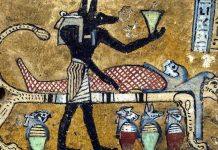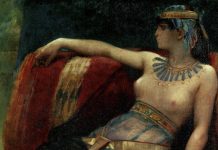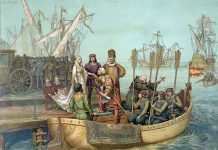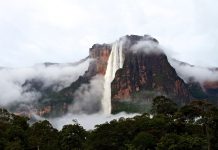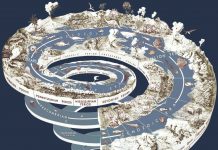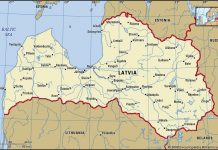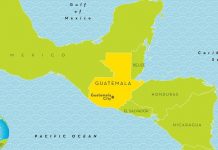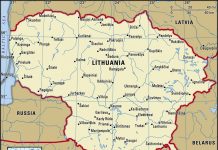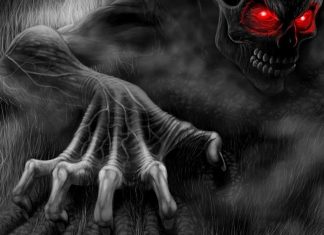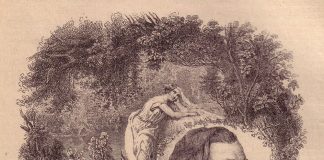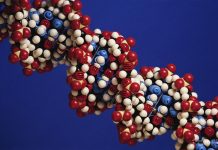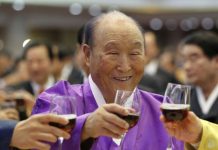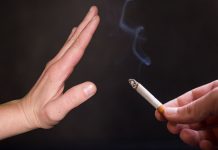The State of Grenada
Capital: St. Georges
Area: 13,321 square miles
Population: 91,000
Population density per sq. km/sq. mile: 7
Ethnic composition
Most people are descendants of black Africans.
Religion
Most of the residents – 82% – are Catholics.
History
Grenada was visited by Christopher Columbus in the XV century, but it was not colonized in the next 200 years. The first French settlers came from Martinique and displaced the local Caribs in 1783, after it was ceded to Britain, France took it again and ceded it to Britain again. It became a British colony in 1887 in 1958 . It joined the Federation of the West Indies, and in 1962 the Federation broke up, and Grenada received internal self-government in 1967. It achieved full independence within the Commonwealth in 1974.
The early political life of the nation was dominated by two figures – Eric Gayri (1922-1997), the leader of the trade union, who founded the United Party of Workers of Grenada (OPTG) in 1950, and Herbert Blazer (1918-1989) from the National Party of Grenada (NPG). After gaining independence in 1974, Gayri was elected Prime Minister. He was knighted in 1977, but his rule was assessed as increasingly authoritarian and corrupt, and in 1979 he was ousted in a bloodless coup by the leader of the left-wing New Precious Movement (NDM) party, Maurice Bishop.
Bishop abolished the 1974 Constitution, founded the 11-Nation Revolutionary Government (NRP) and announced the formation of a People’s Consultative Assembly to create a new constitution. He promised an independent foreign policy, but became increasingly convinced that the United States was involved in a conspiracy to destabilize his rule, which was strenuously denied. Relations with Britain and the United States deteriorated, while Grenada’s ties with Cuba and the Soviet Union grew stronger. In 1983 Bishop tried to improve relations with the United States and announced the creation of a commission to draft a new constitution. This conciliatory position was opposed by more left-wing supporters of his regime, a military coup took place, as a result of which Bishop and three of his colleagues were executed.
The Revolutionary Military Council (RVS) under the leadership of General Hudson Austin took over the management. In response to the protests caused by the execution, Austin promised to return to civilian rule as soon as possible, but on October 25, 1983, the US armed forces numbering about 1,900 people, accompanied by detachments from Jamaica and Barbados numbering 300 people, invaded the island. It is unclear whether the invasion was a response to the Governor-General’s request or whether it took place at the initiative of the Organization of Eastern Caribbean States (OECS). In any case, the United States, concerned that Grenada could become a Cuban base, readily agreed to take part in the invasion, without consulting either Britain or other members of the Commonwealth. The RVS forces were defeated, and Austin and his colleagues were arrested.
In November 1983, the Governor-General appointed an executive provisional council, and then the 1974 Constitution was restored. Several political parties that were in hiding have become active again. After considerable maneuvering, the informal union of centrist and center-left parties turned into a New National Party (NNP) under the leadership of Blaze. In the 1984 general election, the LNP won 14 seats in the House of Representatives, and Blaze became Prime Minister. The US withdrew most of its troops by the end of 1983, and the rest by July 1985.
At the beginning of 1989, Blaze left the post of leader of the National People’s Party, and Kate Mitchell became his successor. However, he remained Prime Minister, although he suffered from cancer. He died in December 1989, and was succeeded by his close supporter Ben Jones, who was awaiting a general election. The 1991 elections were won by Nicholas Bryswaite, the leader of the NDK, and became Prime Minister. In September 1994, Bryswaite ceased to be the leader of the NDK, but remained Prime Minister. He left this post in February 1995, and the new leader of the party, George Brizan, became head of government. His term of office was short, as the LNP under Kate Mitchell won the general election in June 1995. She inherited an economy with a low inflation rate, only 5%, but with unemployment of about 25%.
In the general elections in January 1999, the NNP won a crushing victory, taking all the seats in the House of Representatives, becoming the first party to receive two successful terms of government since the restoration of democracy in 1984. The elections were accompanied by the loss of the NNP of its absolute majority in the Legislative Assembly in November 1998, after Foreign Minister Rafael Fleicher left the government and changed the party to OPTG.





